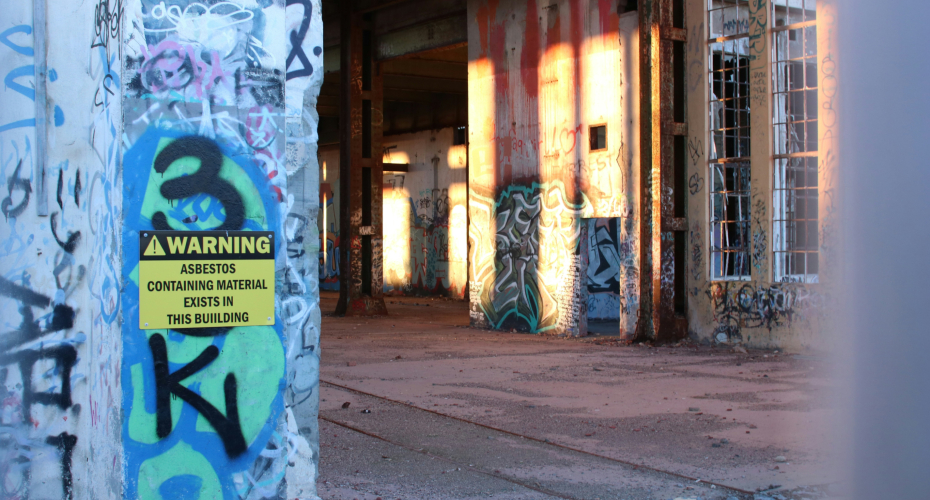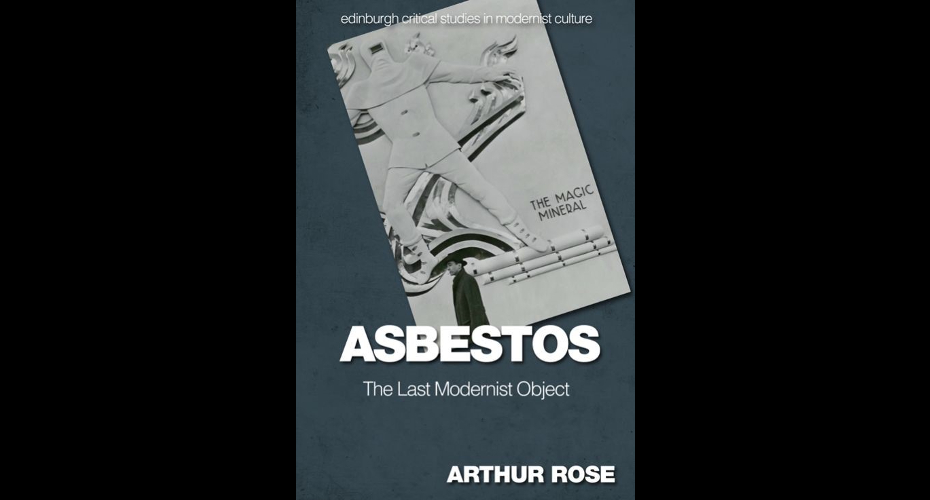Historical and cultural account of asbestos wins award for Exeter academic

Photo by Alwan Ibrahim via Unsplash
A book of literary history that offers a unique and personal take on the story of asbestos has been awarded a significant European literature prize.
Asbestos – The Last Modernist Object has received the European Society for the Study of English Book Prize, in its Cultural and Area Studies in English category for 2024.
Written by Dr Arthur Rose, Senior Research Fellow in English and Medical Humanities, Asbestos – The Last Modernist Object was praised for what the judges termed its “ambitious, original approach to matters of literary representation”.
Lauding it too for the way it reflects upon larger issues such as mass migration, climate change, the proliferation of plastic, racial injustice and toxic legacies, the judges concluded it was a “fantastic read for everyone interested in material intersections between modernism and the environmental and health humanities”.
“I am thrilled and honoured to have won this award,” says Dr Rose, who is a member of the Wellcome Centre for Cultures and Environments of Health at the University. “Literature has an amazing capacity to help us make sense of complex events, by reconciling the disjointed sense of time produced by asbestos-related diseases with the narratives that suffuse our lives, and by giving us images to name and understand these events.
“It is my hope that this award will highlight the important role that literature can play in responding to intractable problems, all too frequently seen as solely the concern of the social and biomedical sciences.”

Through literature and film analysis, the book explores how the artforms responded to the ubiquitous material’s proliferation in the built environment, and then the subsequent revelations of its impact upon human health.
It details surprising encounters that notable writers had with asbestos, including Primo Levi’s work in an asbestos mine, and Franz Kafka’s part ownership of an asbestos factory. And it also draws upon Rose’s own personal family connections to it.
“My grandfather was the manager of one of the biggest blue asbestos mines in the world,” Dr Rose adds. “The book arose out of my need to reckon with that family history, from the particular perspective afforded by my training in literary studies. It was my attempt to think through the use of literature in coming to terms with legacies of toxic exposure and environmental harm.”
Published by Edinburgh University Press in 2022, Asbestos – The Last Modernist Object was also shortlisted for the 2023 MSA (modern studies association) Book Prize.




